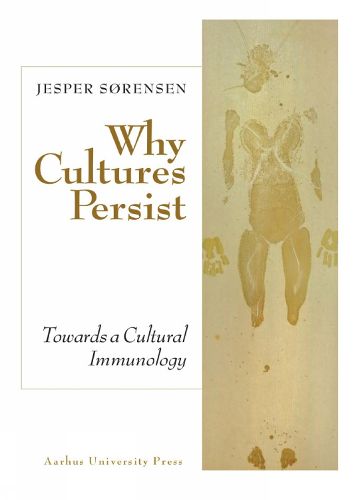Readings Newsletter
Become a Readings Member to make your shopping experience even easier.
Sign in or sign up for free!
You’re not far away from qualifying for FREE standard shipping within Australia
You’ve qualified for FREE standard shipping within Australia
The cart is loading…






Why do humans form groups? Why would a brain, preoccupied with predicting the world, make the formation of cultures possible? And how does our socio-historical context shape the way we think? In a world faced with numerous global challenges and burdened by conflicts defined along cultural boundaries, now more than ever we need a comprehensive theory of the role of culture in human cooperation. Cultures persist: not only because they enable coordination and cooperation between otherwise selfinterested individuals, but because they cultivate our minds to make us grasp and sense the world in a particular manner, creating enduring structures of mutual solidarity based on a shared experience of reality. But cultures are not static: they evolve. As we endeavor to predict and classify the spheres of interaction in which we participate, culture falls into place and can be seen to function much like an immune system. If we are to understand the resilience of cultural groups and the evolution of the human mind, we need only look inside ourselves, to our predictive brain and to the immune system regulating the interaction across borders of both cells and cultures. Alongside our natural immune system, humans are endowed with cultural immune systems that bestow individuals and groups alike with resilience and adaptability. This book is a call for the formation of a genuine cultural immunology. AUTHOR: Jesper Sorensen is Associate Professor of Comparative Religion and co-founder of the Religion, Culture and Cognition research group at Aarhus University. He has published widely on magic, divination, ritual, cognitive historiography, and theory of culture and religion.
$9.00 standard shipping within Australia
FREE standard shipping within Australia for orders over $100.00
Express & International shipping calculated at checkout
Why do humans form groups? Why would a brain, preoccupied with predicting the world, make the formation of cultures possible? And how does our socio-historical context shape the way we think? In a world faced with numerous global challenges and burdened by conflicts defined along cultural boundaries, now more than ever we need a comprehensive theory of the role of culture in human cooperation. Cultures persist: not only because they enable coordination and cooperation between otherwise selfinterested individuals, but because they cultivate our minds to make us grasp and sense the world in a particular manner, creating enduring structures of mutual solidarity based on a shared experience of reality. But cultures are not static: they evolve. As we endeavor to predict and classify the spheres of interaction in which we participate, culture falls into place and can be seen to function much like an immune system. If we are to understand the resilience of cultural groups and the evolution of the human mind, we need only look inside ourselves, to our predictive brain and to the immune system regulating the interaction across borders of both cells and cultures. Alongside our natural immune system, humans are endowed with cultural immune systems that bestow individuals and groups alike with resilience and adaptability. This book is a call for the formation of a genuine cultural immunology. AUTHOR: Jesper Sorensen is Associate Professor of Comparative Religion and co-founder of the Religion, Culture and Cognition research group at Aarhus University. He has published widely on magic, divination, ritual, cognitive historiography, and theory of culture and religion.